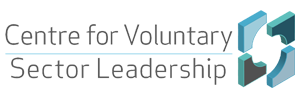You are here
- Home
- Blogs
- Anonymous's blog
- A personal thought piece on Reflection for National Day of Reflection
A personal thought piece on Reflection for National Day of Reflection
This is the first post in an occasional blog series of ‘thought pieces’ written by Dr Helen Britton, Visiting Fellow to The Open University. It briefly explores the importance of reflection and insight.
Last month marked the second ‘National Day of Reflection’. This year, like many, I made time to sit and reflect on the past two years of the pandemic in quiet contemplation and thought about the future.

Many of us may identify with the ‘fork in the road’ analogy or for that matter, ‘being at a crossroads’, ‘looking back to move forwards’. When we are busy, we often don’t make the time to do that; perhaps seeing it as somewhat self-indulgent. Yet, the notion of ‘reflecting’ is ‘hard-wired’ into our professional working habits as we reflect on how we have worked on a project; interacted with colleagues; applied for this or that pot of funding; completed a course.
However, none of us have been in the position of the past two years – a global pandemic; precipitating significant personal and professional challenges; many of which will continue to impact our lives into the future. In ‘reflecting’, I want to know that I have gained insights that can inform my thinking and my actions going forwards. I don’t want to have the experience and miss the meaning (T.S Elliot).
Yes, I’ve reflected personally on what I want to change or to maintain: spending more time with family; continuing to enjoy the outdoors and realising that I cannot fit two alpacas into our garden but can have chickens. Aside from the personal, on a professional note, I have, at some points, felt overwhelmed by the sheer number of initiatives I’ve been involved in; the level of spontaneous innovation and flexibility and the resourcefulness of communities and individuals.
Many of us have poured over Donald Schon’s book, ‘The Reflective Practitioner: How Professionals Think in Action’. I tried to imbibe what I saw as pearls of wisdom and to explore how I could develop as a ‘reflexive practitioner’. Schon built on the works of John Dewey; often viewed as the founder of ‘reflection’. Dewey highlighted that reflection in a learning context is not just a passive recall of an event; reflection is a deliberate and active process. It is about thinking to learn.
Our implicit knowledge enables us to do something often without thinking about it. We don’t always need to stop to think of the steps we need to take.
The knowledge and experience we have about something, the more it informs our automatic ‘pilot’ - our ‘knowledge in action’. We think on our feet; we are aware of the present – the moment – we make interjections at meetings on the basis of our reflecting in action in the moment. The word ‘reflection’ often conjures up the notion of reflection off a surface or body without absorbing it. Well, we understand that when we think of the physics of reflection but sometimes I think that might be part of our human defence mechanism: to reflect back from rather than reflect into.
In moving forwards we need to reflect backwards whilst the memory of the experience and interactions has that resonance of the real before time dulls it and we package it away as we move forwards; eager to put the proverbial ‘lid’ on the unpleasant parts of our recent experiences. In order to achieve something meaningful out of that process, we need to look deeper into the often deep ‘pools’ of our experiences; a not particularly easy task.
For me, reflecting over this period has become an iterative feature of my personal and professional life. I note my feelings; my thoughts (good and bad) and ideas to share with colleagues; responses to comments and practical solutions to practical problems. Sometimes, I have thought that I am merely reflecting on rather than into; itself an insight.
This month, I took more careful ‘aim’ to contemplate more carefully. Personally, I believe we need reflection to be ‘hard-wired’ into our actions more than ever. Dewey argued that reflective thought acts as an antidote to autopilot by affording us the sole method of escape from purely impulsive or purely routine actions. Perhaps we should ensure that we build in time to do just that; to ensure that whilst having the experience, we don’t miss the meaning.
When I reflect on what I feel underpins effective leadership, I think it begins with being self-aware. This simply means that we need to work at really understanding our strengths and our weaknesses; think how our values fit with our behaviour, and work at facilitating how we can develop a culture of respect for ourselves and for others in our teams. We certainly have access to some excellent skills-building course and events at the Open University; many of them free.
What works for me as a practitioner is the ‘fit’ between the sharing of leadership experiences with the examination of leadership concepts. Improving our practice must start from understanding ourselves better, building our confidence, our resilience and understanding the cultures and the context we operate in with our colleagues.

Dr Helen Britton
Helen is an educational practitioner, researcher and entrepreneur. After starting her professional life in the chemical industry, she re-trained to teach mathematics and to develop her entrepreneurial interests in construction and property restoration. She has lectured in mathematics and Access to Science and Technology. Helen has almost three decades of experience of designing and delivering innovative and inclusive courses and capital projects as part of multi-stakeholder initiatives within the United Kingdom.
28th July 2022


